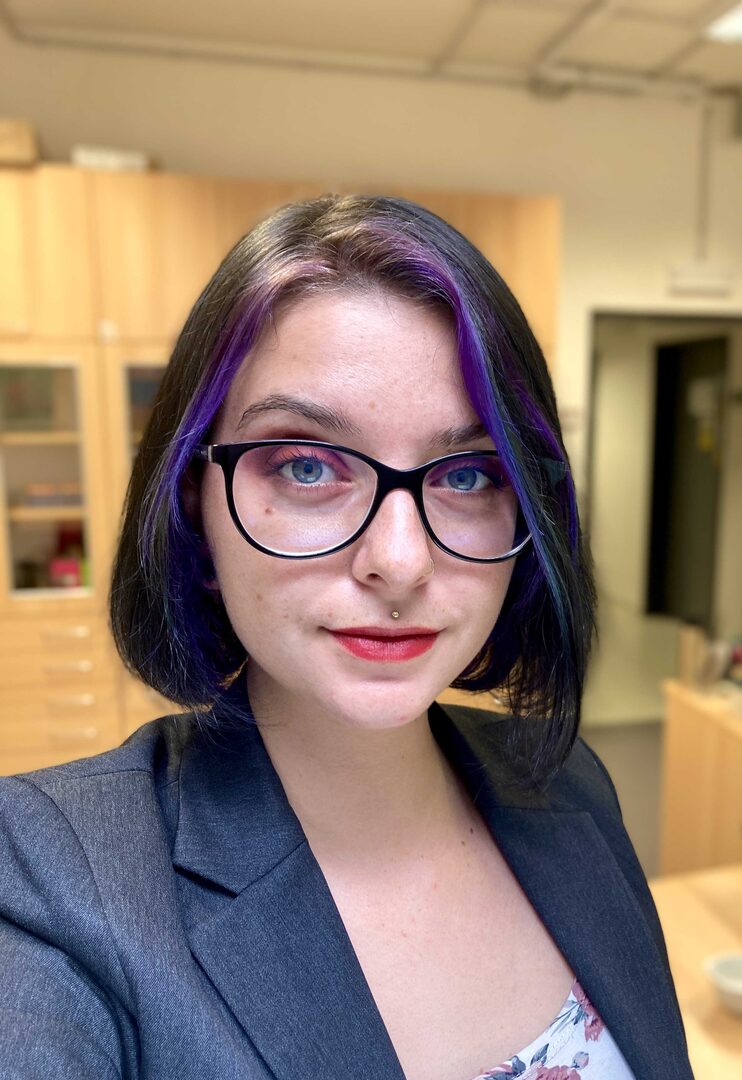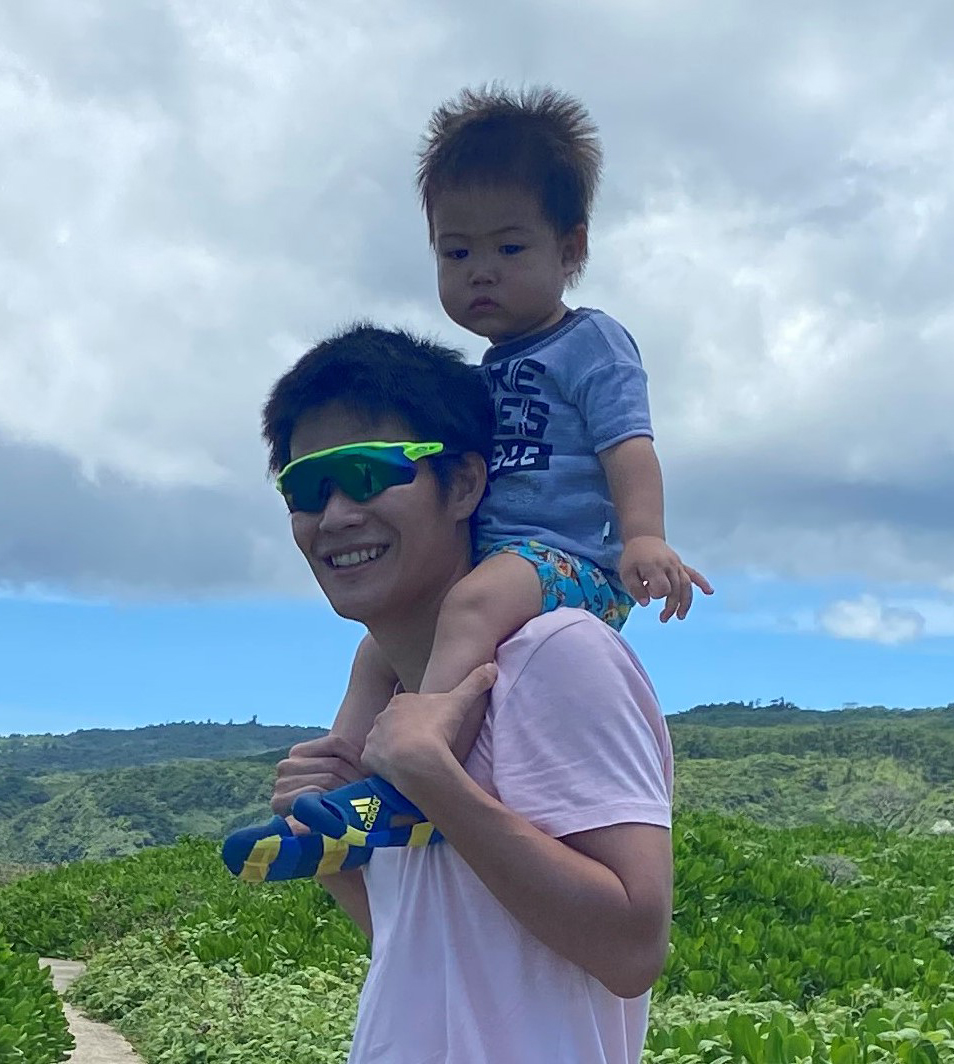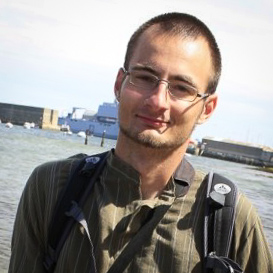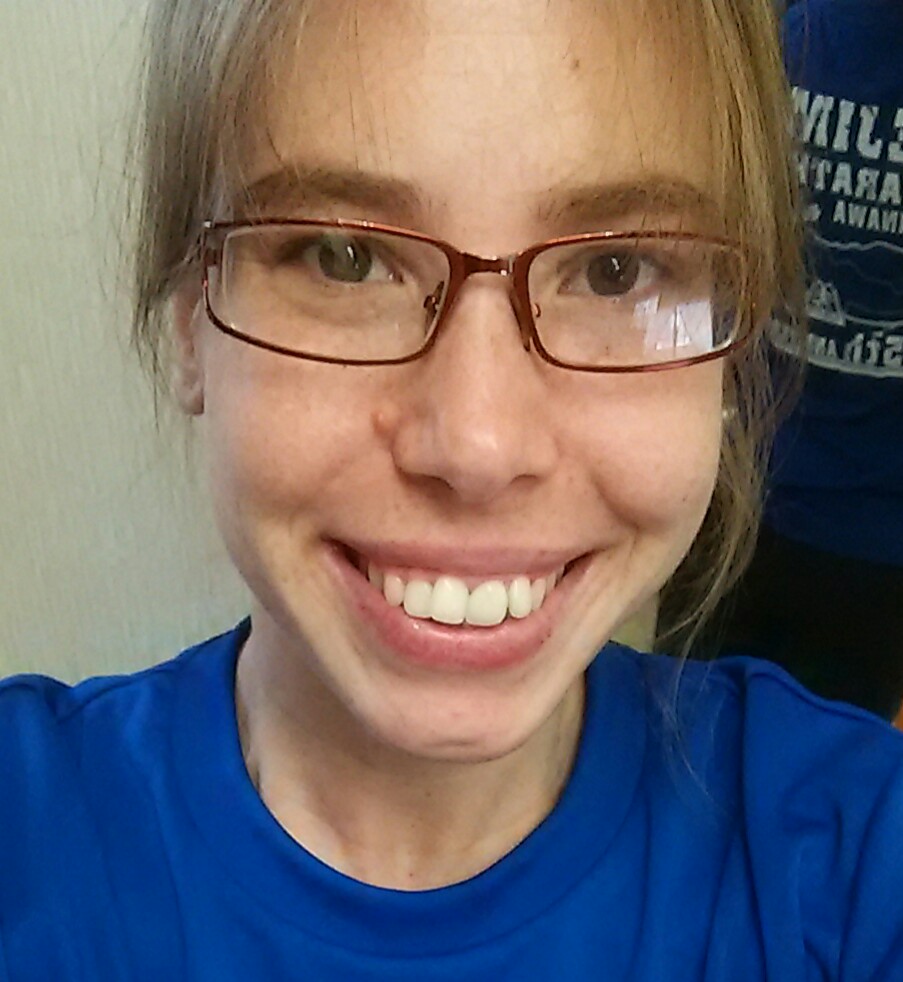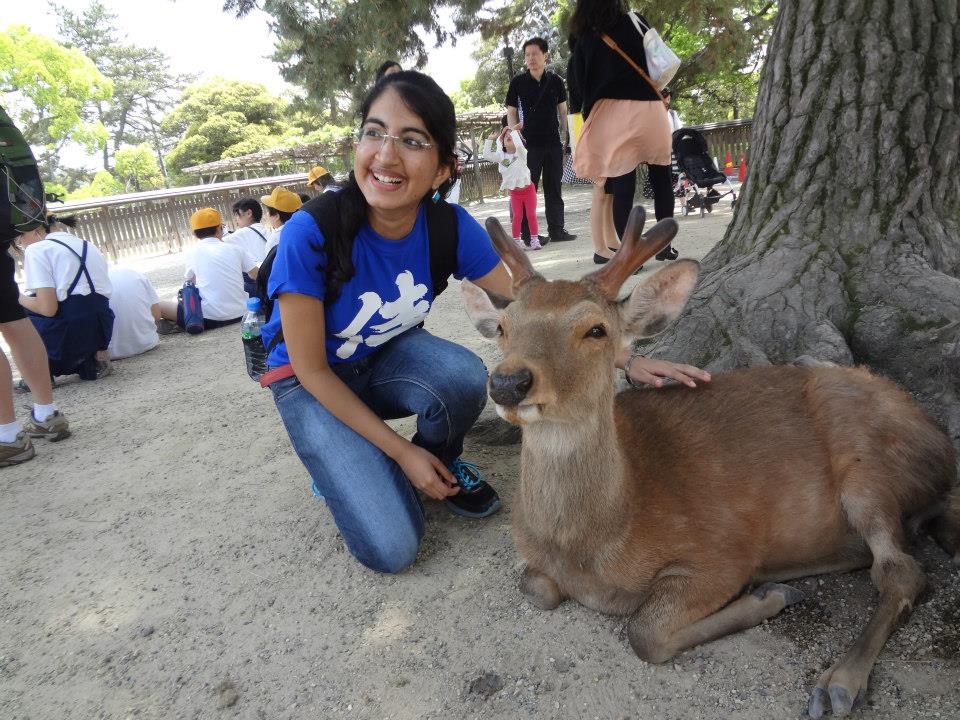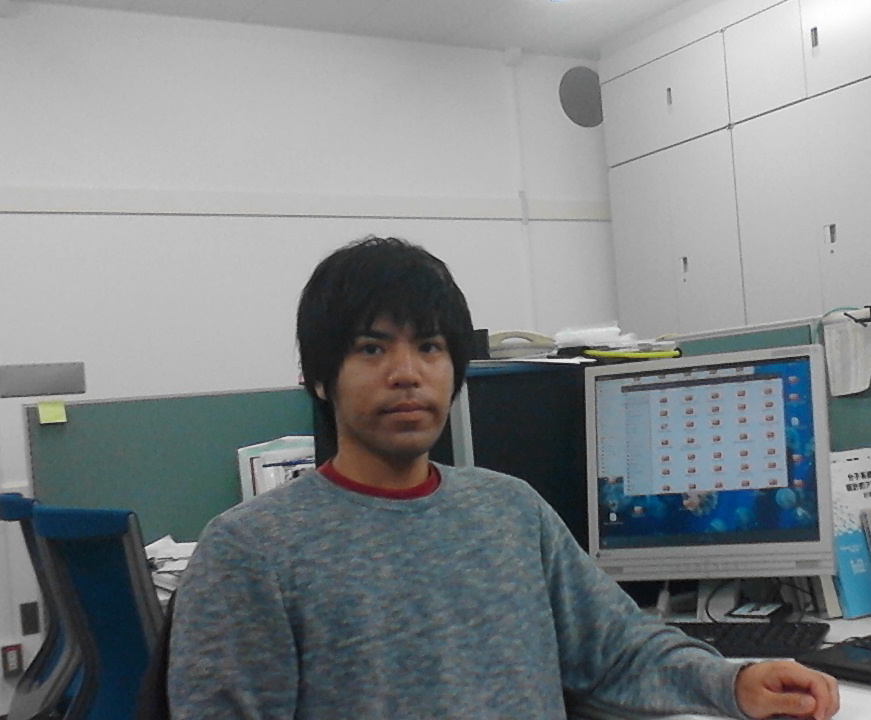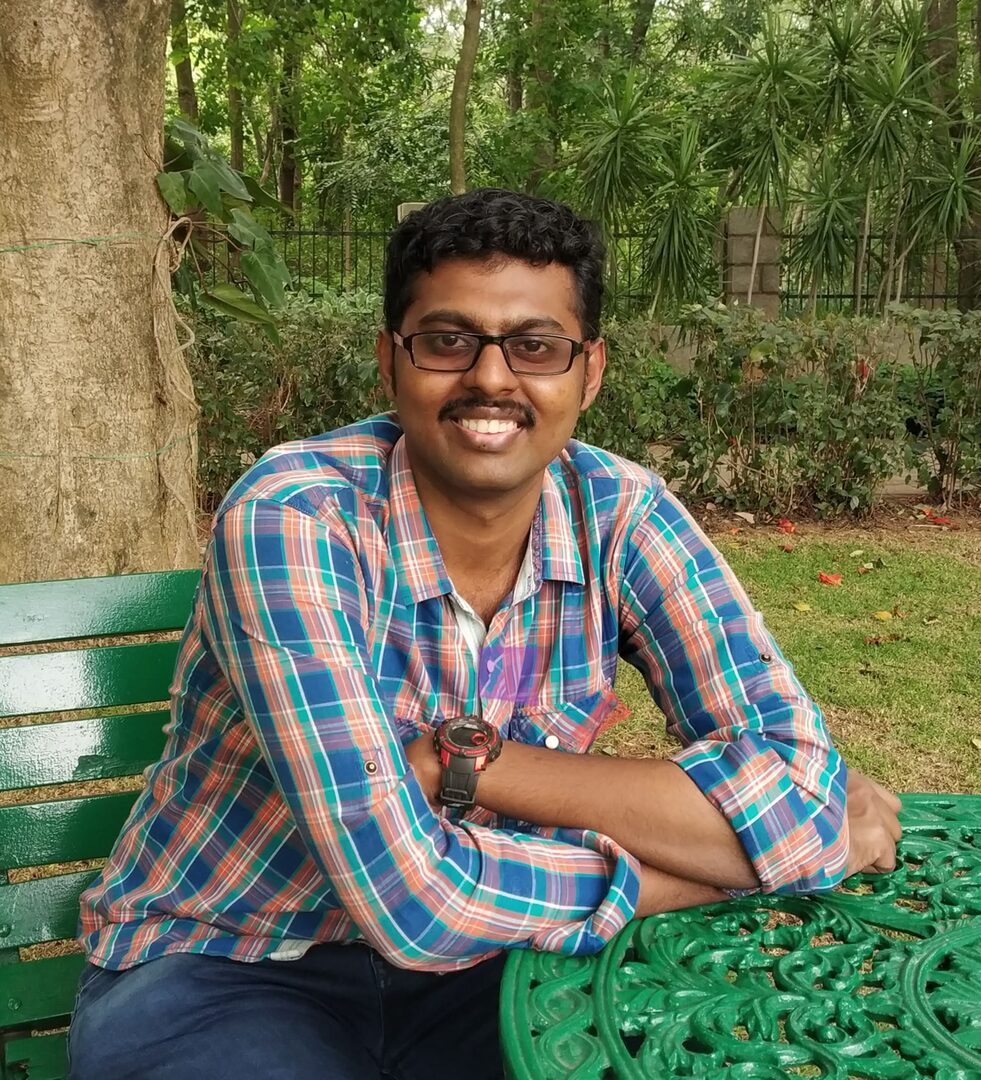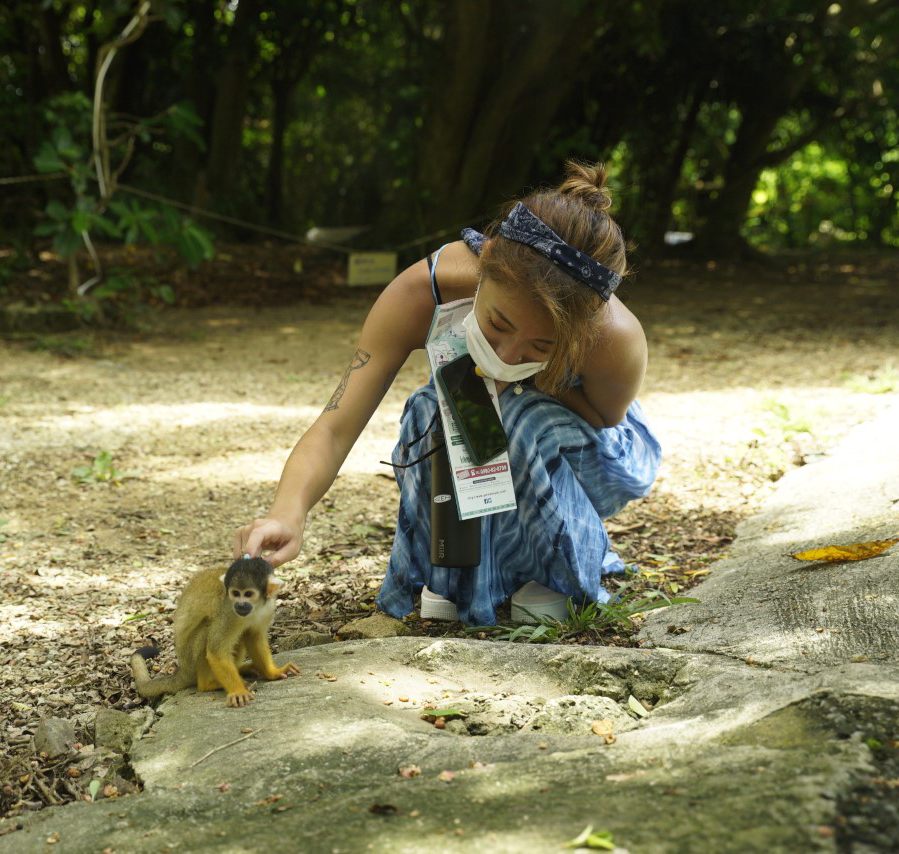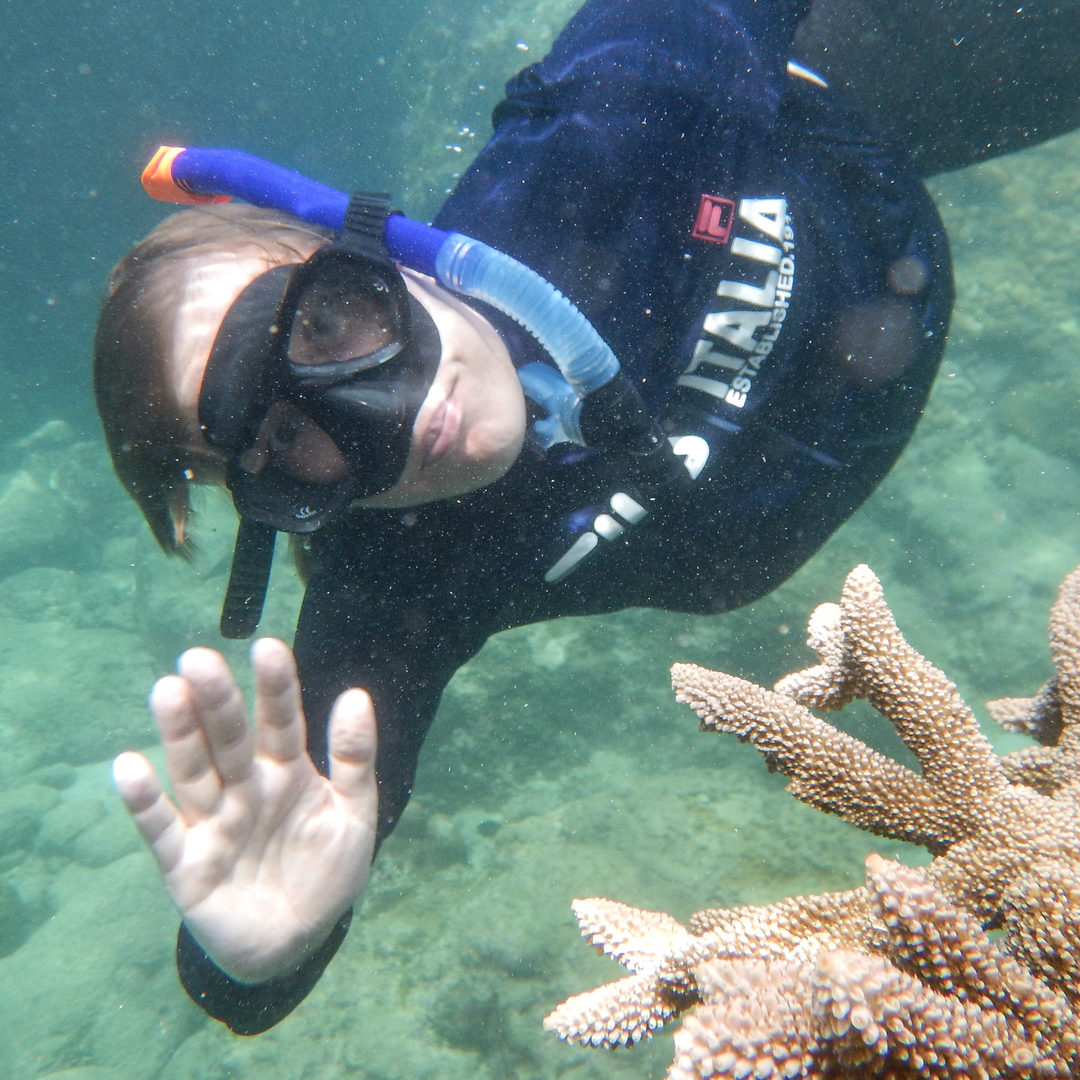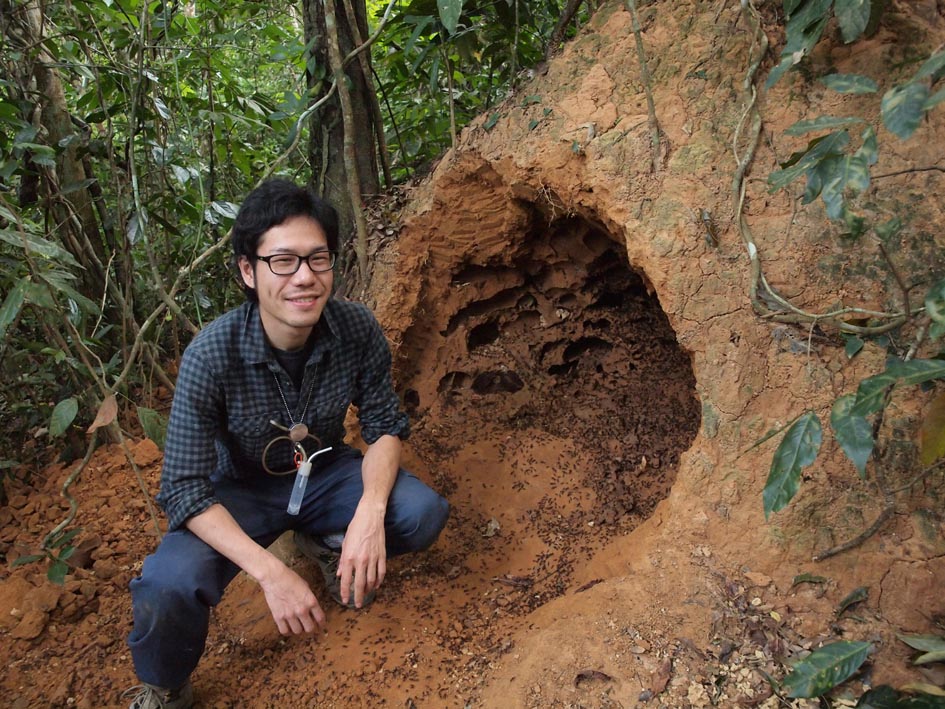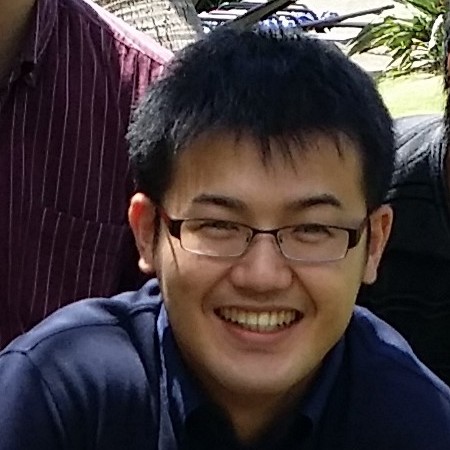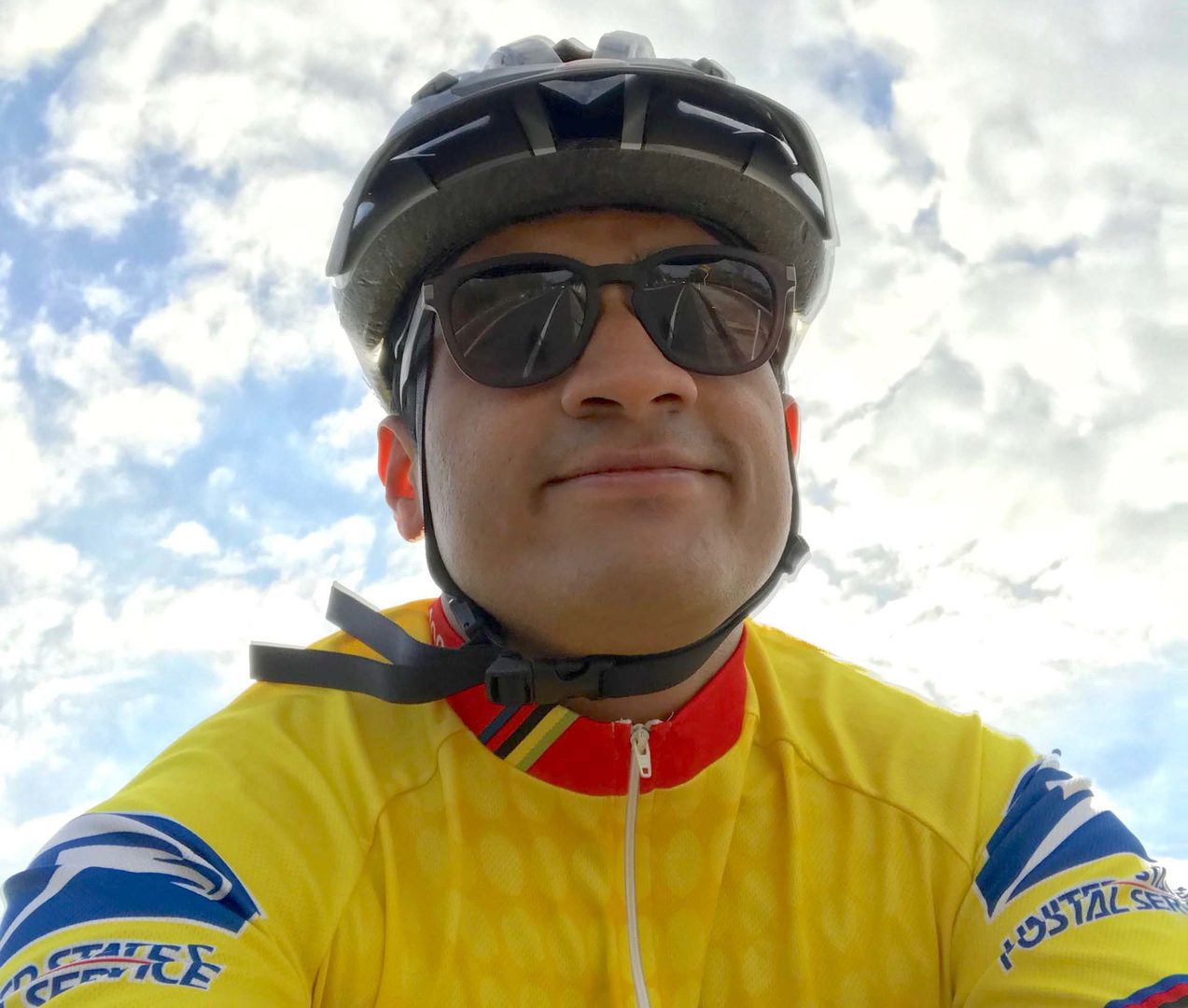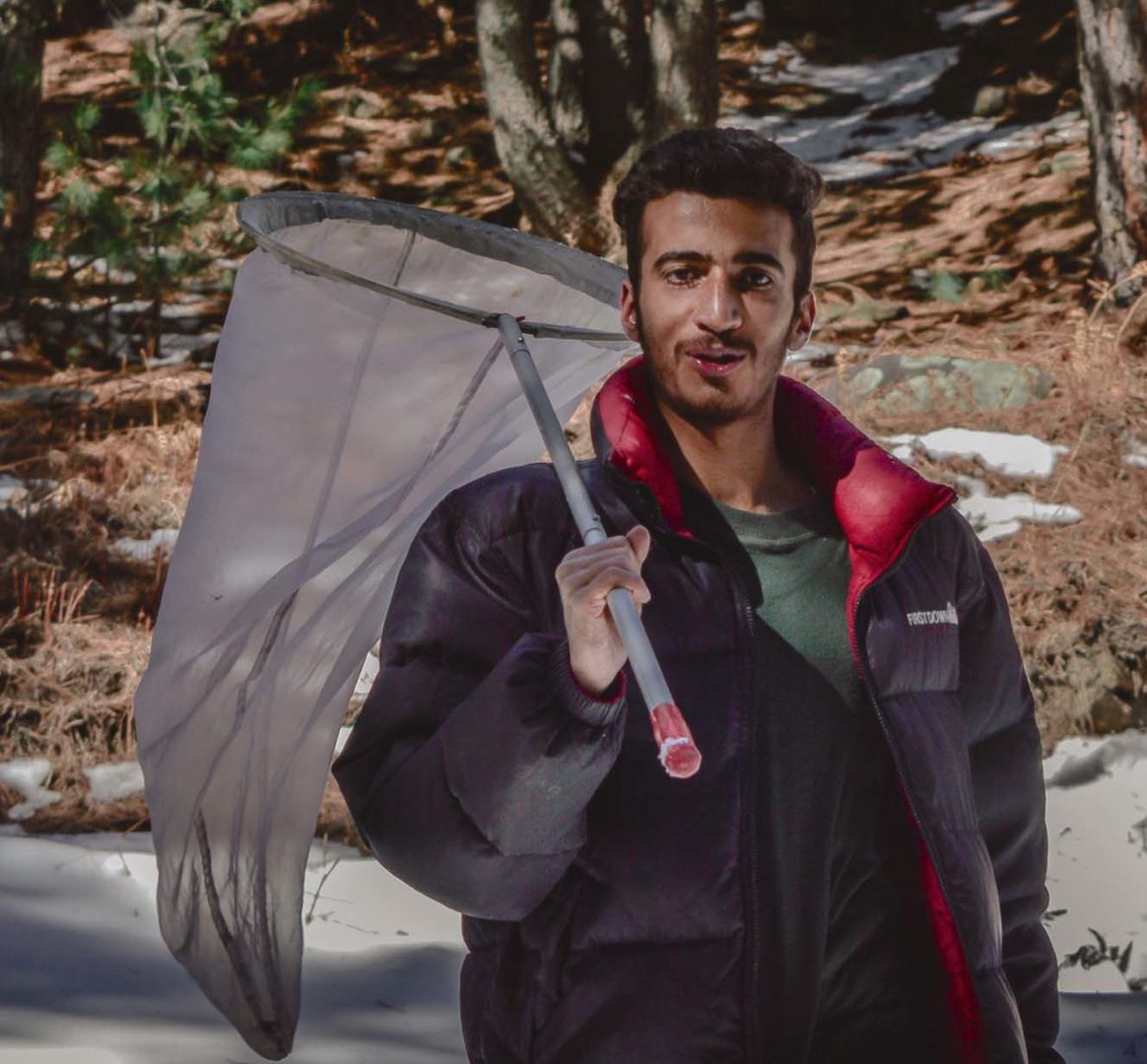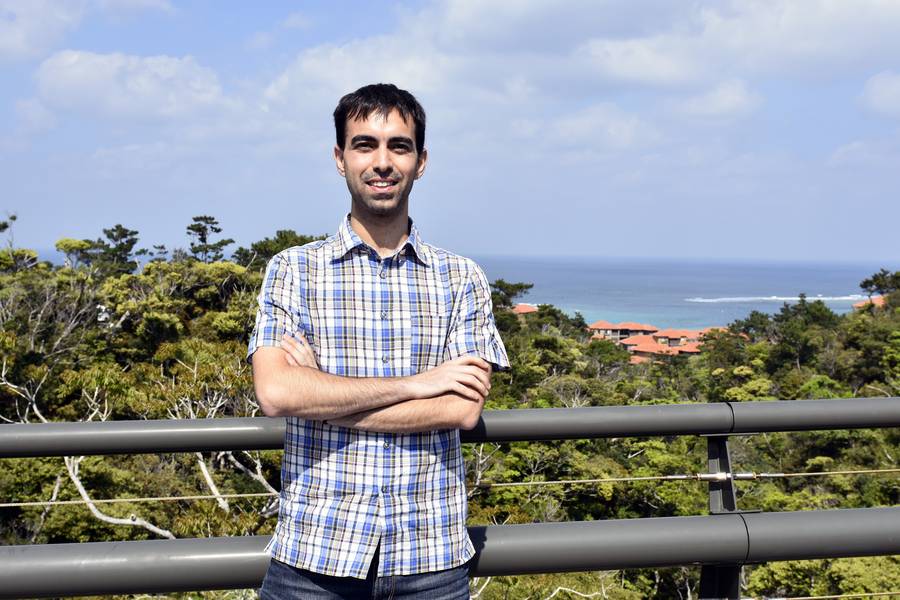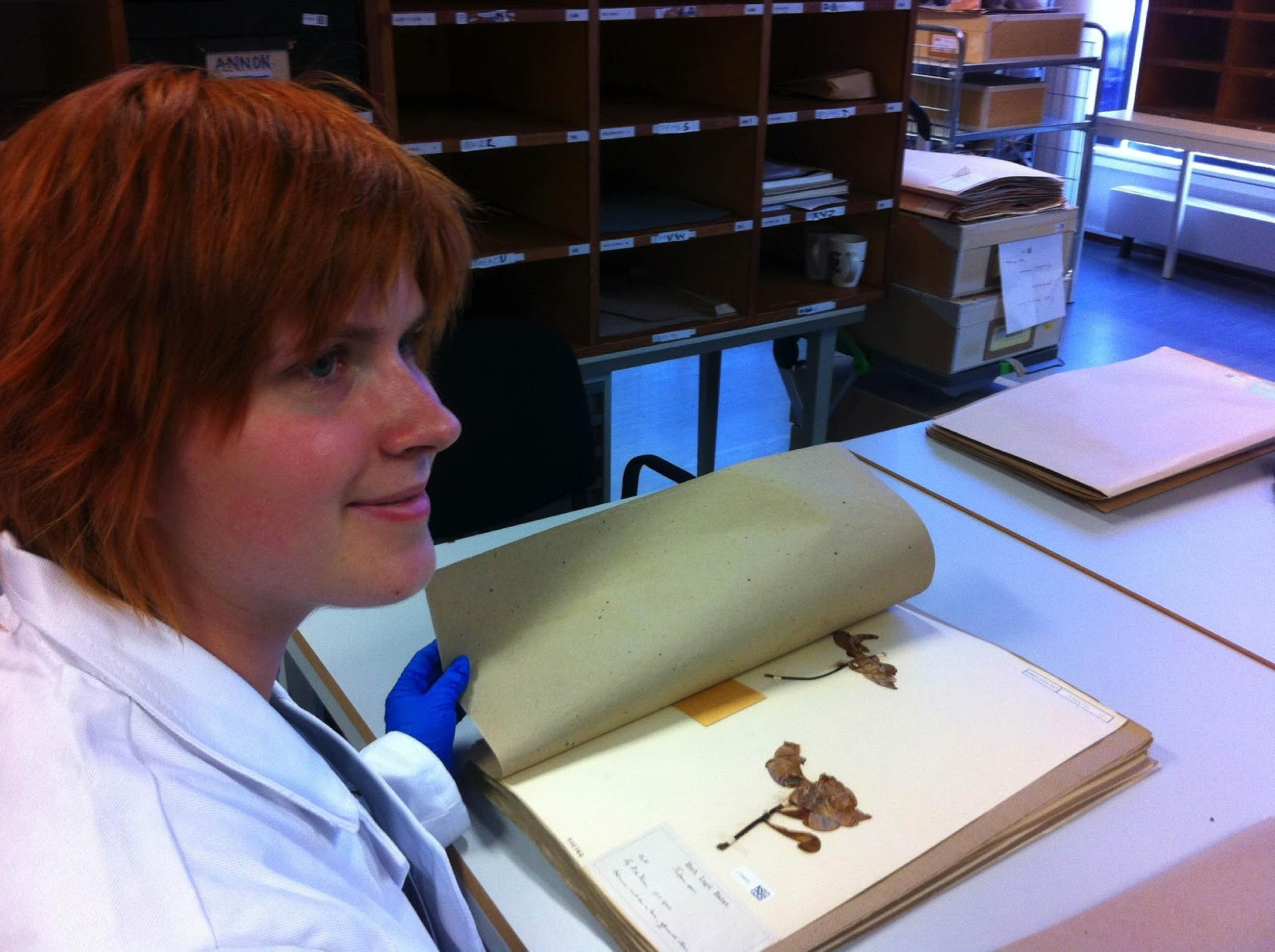Past members
Terka Berankova, Research Intern (April 2022 - March 2024)
I joined this unit as a research intern. I am in the third year of my Ph.D. at the Czech University of Life Science Prague. My Ph.D. focuses on understanding the functioning of dead plant biomass degradation by termites. Termites host a specific microbiota in their gut. I use a sequencing approach to obtain information about the identity and function of prokaryotes and eukaryotes present in the gut of termites.
Nobuaki Mizumoto, JSPS Postdoctoral Fellow (SPD) (April 2020 - December 2023)
I am a behavioral ecologist interested in the evolution of collective behavior and movement patterns of animals. I use a combination of mathematical modeling and empirical experiments to study animals, especially termites. I completed my Ph.D. in 2018 at Kyoto University, studying mate search and collective building in termites. Then, I spent two years at the Arizona State University as a JSPS Overseas Research Fellow, where I focused on the tunneling behaviors of termites and untangled the complex relationship between individual behaviors and tunnel structures. I joined the Evolutionary Genomics Unit with a JSPS Special Postdoctoral fellowship (SPD). I perform a wide range of comparative studies on termite nest building. I compare individual- and group-level phenotypes along phylogenetic trees to unveil the evolutionary history of termite collective behaviors.
Anna Prokhorova, Postdoctoral Researcher (January 2021 - April 2023)
I study microbial interactions within communities. My work is at the interface of microbiology, biochemistry, and biophysics. I obtained my Ph.D. in 2016 from the Karlsruhe Institute of Technology, Germany. I studied exoelectrogenic microbial communities, which can transfer respiratory electrons to an extracellular electron acceptor by the oxidation of organic matter in waste streams, using microbial fuel cells technology for biogas production from livestock waste.
In the Evolutionary Genomics Unit, I investigate microbial interactions in the termite gut. The termite gut is a natural microbial bioreactor digesting wood and producing biofuels. My goal is to shed light on the role of termite gut microbial symbionts and their interactions during lignocellulose degradation.
Ales Bucek, Staff Scientist (July 2017 - April 2023)
I have a long-term scientific interest and fascination for the molecular basis of the evolution of novelties in insects. During my Ph.D. at the Institute of Organic Chemistry and Biochemistry, Prague, Czech Republic, I studied how the enzymatic properties of pheromone biosynthetic enzymes influence the evolution of sex pheromone communication in moths (Tobacco hornworm moth - Manduca sexta) and Hymenoptera (bumblebees - Apidae: Bombus).
For my postdoc, I am devoting to another extraordinarily evolutionary successful yet understudied insect group: termites. I aim to answer how termites evolved their sophisticated chemical defense arsenal, how do they interact with and adapt to a range of parasites. More generally, I aim to uncover the genomic and transcriptomic underpinnings of their diverse life strategies.
Arno Hagenbeek, rotation student (September 2022 - December 2022)
I am 1st year Ph.D. student broadly interested in microbial biology, particularly microbe-microbe and host-microbe interactions. For my rotation in the Bourguignon unit, I am annotating binned sequences obtained from the termite gut microbiome. In this way, I am helping the unit's efforts to characterize the enzymatic repertoire responsible for the termite's ability to digest wood. In my spare time, I enjoy playing piano, hiking, and martial arts.
Crystal Clitheroe, Technician (June 2017 - October 2022)
I am Crystal, a technician in the Evolutionary Genomics Unit. I joined OIST in August 2015, and I am originally from South Africa. I have a multidisciplinary background studying Microbiology, Biochemistry, Invertebrates, and Bioinformatics. I am curious by nature and am especially interested in evolutionary biology and how computers can assist biological research. In the Evolutionary Genomics Unit, I process samples for sequencing and occasionally write code for data analyses. My hobbies are reading, coding and dancing. I am very excited to be involved in research studying the fascinating world of termites!
Vera Emilianenko, Rotation student (April 2022 - August 2022)
Jigyasa Arora, Ph.D. student (JSPS DC2) (September 2017 - August 2022)
I am Jigyasa, from New Delhi, the capital city of India. Born and raised in one of the largest Indian cities, I love trying new cuisines and meeting new people. After finishing my undergraduate's degree from the University of Delhi, I traveled to the U.K and obtained a master's degree from the University of Essex. I moved to Okinawa, Japan, for an internship and fell in love with the tropical climate, scientific environment of OIST, and Japanese culture. I am currently working as a graduate student in the Evolutionary Genomics Unit at OIST, exploring the termite gut environment, especially the role of gut bacterial symbionts in lignocellulosic degradation. During my free time, I like to travel and improve my dancing skills.
Menglin Wang, Ph.D. student (September 2017 - June 2022)
My name is Menglin, and I am a Ph.D. student in the Evolutionary Genomic Unit. I am Chinese, and I got a master's degree in Botany in 2015 from the Xishuangbanna Tropical Botanical Garden, Chinese Academy of Science. During my master's degree, I studied the reproductive biology and pollination strategy of the plant genus Bauhinia. In the Evolutionary Genomics Unit, I use data obtained with high-throughput sequencing technologies to study the historical biogeography of termites. I am also interested in the co-evolution between termites and their termitophilous insects.
Yukihiro Kinjo, Postdoctoral Researcher (July 2017 - March 2022)
Symbiosis is ubiquitous and is one of the most important driving forces of organism evolution. To get a better understanding of the diversity of life, we need to elucidate how organisms evolved in symbiotic systems. The most extreme symbiotic system is obligate symbiosis, in which both parties cannot survive alone. During my Ph.D., I worked on comparative genomics and studied the genome evolution of Blattabacterium, the intracellular bacterial endosymbiont of cockroaches. I intend to determine how host ecological changes affect the evolution of their endosymbiont genome. In the Evolutionary Genomics Unit, I continue working on this question and try to determine how environmental factors drive the genome evolution of endosymbionts.
Pradeep Palanichami, Rotation student (January 2021 - April 2021)
I am Pradeep, and I was born in Madurai, an ancient city of India. I acquired my bachelor's degree in Biotechnology from the Tamil Nadu Agricultural University, India. I obtained my master's degree in Applied Microbiology from the Vellore Institute of Technology, India. Before beginning my Ph.D. at OIST, I worked as a Junior Research Fellow at the National Center for Biological Sciences, India. I have a long-term scientific interest and fascination for insect-microbe symbiosis. Studying these systems can provide novel avenues for controlling agricultural pest insects and vectors of human diseases. In particular, I am interested in studying the role of bacterial endosymbionts in insect adaptation, physiology, morphology, metabolism, detoxification, immune functions, and pest control. Insect symbionts are exciting sources of biotechnological applications. In the Evolutionary Genomics Unit, I investigate the prevalence of the bacterial endosymbiont Cardinium in American termites. Cardinium is a maternally inherited intracellular bacteria known for inducing cytoplasmic incompatibility and having a wide range of impacts on arthropods biology. I reconstruct the evolution of Cardinium with termites using co-phylogenetic analyses. This work will give hints about the nature of the symbiosis and unravel its impact on termite speciation and mitochondrial diversity.
Nonno Hasegawa, Rotation student (September 2020 - December 2020)
I was born and raised on the coasts of Kanagawa. My interest in molecular biology bloomed in high school as I pursued biochemistry as my bachelor's degree at the University of Guelph, Canada. During my degree, I enrolled in a Co-op program for 16 months. I spent eight months with Dr. Foster at the University of British Columbia, where I discovered my passion for honey bee research. I then researched honey bee pathogens with Dr. Merrill at my home university for two years. During the summer of 2019, I joined OIST as an intern student in the Laurino Unit, where I worked on a typical biochemistry project. I then joined the Mikheyev Unit in December 2019 as a visiting researcher and, later, as a rotation student. I joined the Evolutionary Genomics Unit to further my skills in genomics and transcriptomics. I am excited to work on termite phylogenomics and improve my bioinformatics skills. During my free time, I love to surf waves on the Okinawan coasts, play volleyball, and spend time exploring yummy cafes on the island.
Shagufta Qamar, Rotation Student (May 2020 - August 2020)
Lucia Zifcakova, Postdoctoral Researcher (June 2017 - May 2020), Now Postdoctoral Researcher in the Physics and Biology Unit at OIST
I am a microbiologist with a strong background in molecular biology. During my Ph.D. in the Laboratory of Environmental Microbiology, Czech Academy of Sciences (Prague, Czech Republic), I worked on the ecology of microbial communities in temperate forest ecosystems. My research combined a multi-omics approach with measurements of enzymatic activities in situ and chemical analyses of soil content. This multidimensional approach allows a precise measurement of microbial activity, including the activities that strongly influence the environment, such as carbon cycling in the soil.
During my postdoctoral stay in the Evolutionary Genomics Unit, I intend to characterize fungal, bacterial, and archaeal communities in the guts of termites. I will also determine the role microbes play in the decomposition of lignocellulose and soil organic matter, the food source of most termites. In addition, I want to determine how fungal symbionts coevolve with their termite hosts and how termite feeding habits select specific fungal symbionts.
In my free time, I enjoy calligraphy, snorkeling, as well as any activity that keeps me away from computers.
Taisuke Kanao, Postdoctoral Researcher (April 2018 - March 2020), Now Assistant Professor at Yamagata University
I got my Ph.D. from Kyushu University in 2015. I then spent three years at Kyoto University as a JSPS Postdoctoral Fellow. I joined the Evolutionary Genomics Unit at OIST in April 2018. I miss the excellent craft beer bar of Kyoto!
I am interested in the diversity and natural history of the social symbionts of termites, the termitophiles. Termitophilous species belong to a broad range of insect groups, and their unusual morphology and behavior have always attracted me. I study species diversity, evolutionary history, and ecology of termitophilous rove beetles of the subfamily Aleocharinae, perhaps the most diverse group of termitophiles. I performed field surveys to collect fresh specimens of termitophiles. My insect collections have been used to describe new species and estimate their phylogenetic relationships. I am also working on the behavioral and chemical ecology of termitophilous rove beetles. In the Evolutionary Genomics Unit, my work focuses on reconstructing the phylogenetic tree of termitophilous rove beetles, scuttle flies, and silver fishes.
Alina Mikhailova, Research Intern (September 2019 - February 2020)
I am an undergraduate student from Kaliningrad, Russia. My main research topic is mitochondria: I study the evolution of the mitochondrial genome structure in different species. During my internship in the Evolutionary Genomics Unit, I want to learn more about the mutagenesis and evolution of termite mitochondrial DNA.
Dan Kozome, Rotation Student (September-December 2019)
I obtained a master's degree in agriculture at the University of the Ryukyus. During my master's degree, I worked on protein engineering and attempted to make proteins thermostable or enhance their activities.
My main research interest is the relationship between the structure and function of proteins, especially how proteins acquire their functions.
In the Evolutionary Genomics Unit, I would like to learn about the evolutional trajectory of proteins in the termite gut.
Rio Kashimoto, Research Intern (February-June 2019)
I am Rio, which means river in Spanish, an internship student at the Evolutionary Genomics Unit. I love hiking and eating food from around the world.
During my master's degree at the Kyoto Prefectural University of Medicine, I studied lignin, one of the components of wood. In the Evolutionary Genomics Unit, I am studying the evolution of a bacterium named Blattabacterium, which lives in close association with cockroaches. Blattabacterium grows in specialized cockroach cells, called bacteriocytes, and participates in the metabolism of their hosts. My project aims to calculate the mutation rate of Blattabacterium in the American cockroach, Periplaneta americana. Precise estimations of mutation rates are critical to understanding how Blattabacterium genomes evolve.
Gaurav Agavekar, Rotation Student (January-April 2019)
I have broad interests in documenting biodiversity patterns, especially of insects, and elucidating the ecological and evolutionary processes shaping them. Before beginning my Ph.D. at OIST in fall 2018, I completed a master's degree in Wildlife Biology and Conservation at the National Center for Biological Sciences (NCBS) in Bangalore, India. For my master's thesis, I studied the diversity and community assembly of ants on the Andaman Islands in India. Since most of my previous work has been on ecology, I am excited to work in the Evolutionary Genomics Unit for my rotation project, which broadly involves studying the evolution of symbiotic microbes associated with termites.
Shubham Gautam, Rotation Student (January-April 2019)
Born and raised in close vicinity to nature in a rural setting of a Himalayan state of India, I have always been in love with nature and mountains. I have a master's degree in wildlife biology and conservation from the National Center for Biological Sciences, Bengaluru, India.
Broadly, my current research interests lie in the field of evolutionary ecology. I am particularly interested in the ecological and evolutionary causes and consequences of developmental/phenotypic plasticity, the role of evolutionary processes in ecological communities, and the dynamics of local adaptations across space and time. My approach to research is question-oriented, and I am most interested in answering fundamental questions in ecology and evolution. In the Evolutionary Genomics Unit, I am working on the evolution of Misotermes, a genus of parasitoid phorid fly developing in the head of Macrotermes soldiers.
Lazzat Aibekova, Rotation Student (September-December 2018)
During my undergraduate studies, I investigated the molecular epidemiology of HIV in Central Asia and former Soviet Union countries (FSU). The projects were dedicated to understanding the development and recent trends in the transmission of HIV in the FSU region. My projects were closely related to Evolutionary genomics, and I feel I need to expand my horizons and venture into new areas of research. I am enthusiastic about doing some research in this field as a rotation student in the Evolutionary Genomics Unit.
Julian Katzke, Rotation Student (Mai-August 2018)
Having a paleontological background, molecular evolution has been the topic everyone talks about. Coming to OIST, this is the right time and place for me to expand my knowledge on G, C, A, and T (and maybe even U). In the Evolutionary Genomics Unit, I am learning how to build molecular phylogenetic trees. I help unit members analyze their termite metagenomics dataset and reconstruct the evolutionary relationships among termite species. I also study how termites have co-evolved with their gut symbionts.
Stefano Pascarelli, Rotation Student (Mai-August 2018)
Mensore! I have a background in bioinformatics, but I have always been attracted by lab experiments. I previously performed research in Padova, Bologna, and Heidelberg. The main focus of my Ph.D. is evolution. Evolution is the groundwork of organism complexity. It takes place at various levels, from the molecular level to the larger scale of populations. In the Evolutionary Genomics Unit, I plan to study the co-evolution between termite hosts and their symbionts using a comparative phylogenetic approach.
Jekaterina Stemmere, Rotation Student (January-April 2018)
I was born in Riga, Latvia, a place with a long and interesting history. Soon after graduation from secondary school, I moved to the Netherlands to study chemistry and biology. I studied in various universities in different parts of the Netherlands – Hogeschool Zeeland, Wageningen University, and Leiden University, where I participated in a project of a local natural history museum – Naturalis, during which I fell in love with museomics, the genetic study of museum specimens. Here at OIST, I am working hard on my Ph.D., and I am building the solid foundations I need for my future career in museomics!




